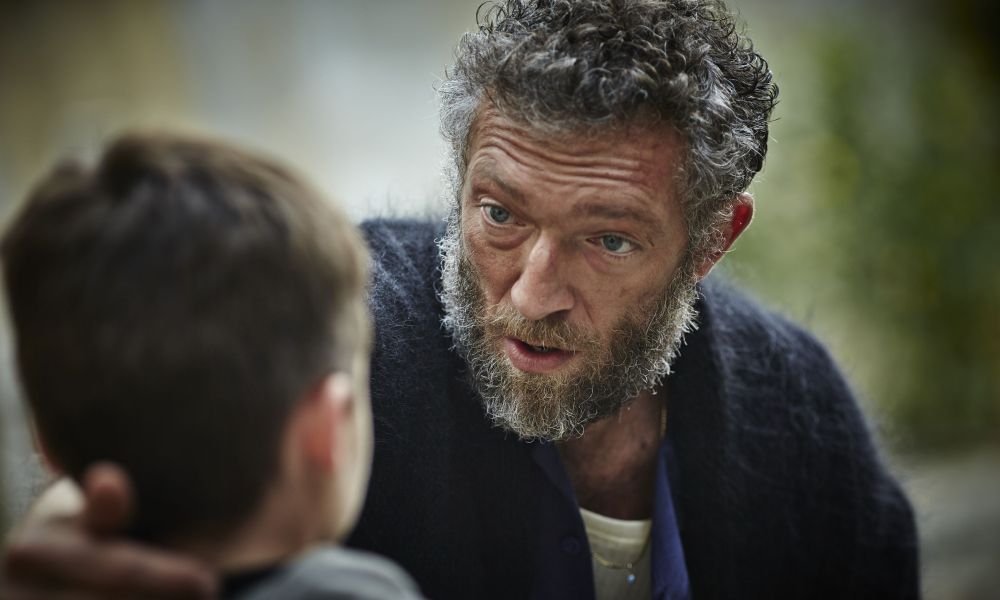 (2.5 / 5)
(2.5 / 5)
A grey curve of mountain road. A forested valley overshadowed by dilapidated tower blocks. A dog howls, off.
Nonspecific in its exact time and place, though vaguely Baltic in its devastation, the inhospitable landscape into which Partisan immerses us makes a strong case for any sort of alternative, as offered by Vincent Cassel’s Gregori.
A charismatic cult leader with his own walled compound, he plays many roles to the women and children who populate his enclave. To the woman, Gregori’s a protector, a provider, someone to give and receive love. To the children, he’s also a teacher — of gardening, of electronics, of assassination.
Through the eyes of his eleven-year-old adopted son Alexander (wise-eyed Jeremy Chabriel), we see Gregori train his brood in using paintball guns on multi-colored balloons, coach them through the approach, provide positive feedback, before sending them out into the world to do “errands”.
That we never discover why their unassuming victims have been targeted — one is a mechanic, another a nameless tenant — contributes to the abstruse sense of allegory that pervades Ariel Kleinman’s film.
What’s clear is that Partisan is, at least in part, a look at the point in your life when you first realize that adults are fallible; that, what’s more, they lie. When a sullen, disruptive newcomer, Leo (Alex Balaganskiy), contradicts Gregori’s teachings, favored son Alexander finds his surrogate father drawn into sharp focus.
With his wolfish profile and Gallic insouciance, Cassel seethes with an innate sense of danger. Even playful chastisement for climbing down the drainpipe carries an undercurrent of menace.
Gold stars and weekly karaoke sessions — song of choice: Daft Punk’s Game of Love — seem less like displays of paternal affection and more a system of control, and Gregory, while outwardly reasonable, isn’t used to being challenged.
Editor Jack Hutchings’ use of hard cuts plays into the notion of violence simmering below the surface, but Sarah Cyngler’s script should have mined for deeper meaning. Family, business, and survival are grand themes in dire need of context.
